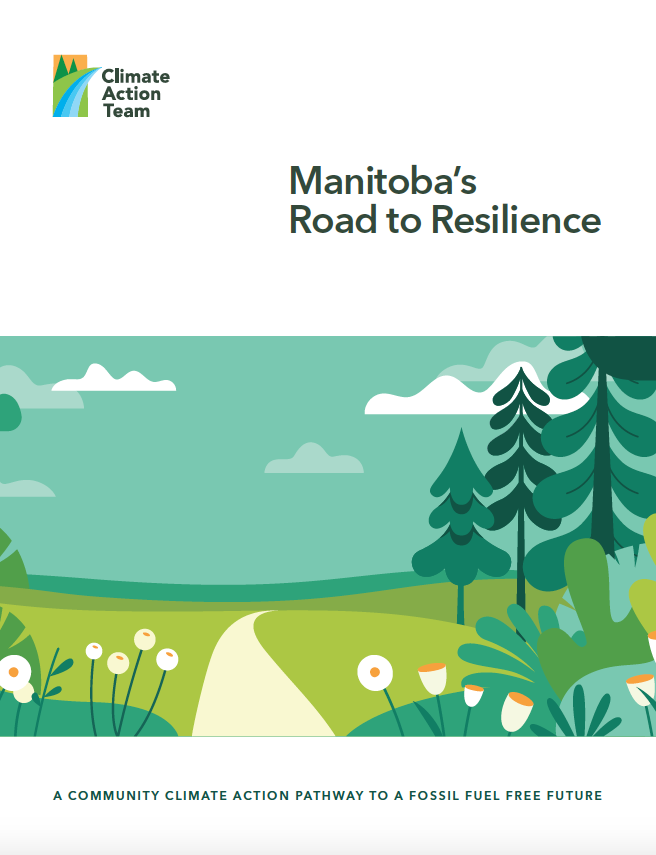
Visionary new strategy to lead Manitoba out of the climate crisis
“Manitoba’s Road to Resilience: A Community Climate Action Pathway to a Fossil Fuel Free Future” is a comprehensive vision to get to zero emissions
For immediate release: February 18, 2021
WINNIPEG (Treaty 1 Territory and Homeland of the Métis Nation) — Today Manitoba’s Climate Action Team is releasing a comprehensive community strategy to mitigate the worst of the climate crisis by eliminating greenhouse gas emissions and building local resilience. Manitoba’s Road to Resilience: a Community Action Pathway to a Fossil Fuel Free Future is the first published provincial pathway to reach targets outlined in the United Nations IPCC 1.5 special report. Road to Resilience focuses on the three largest emissions sectors in the province—: Buildings, Food & Agriculture, and Transportation— and on how to use Manitoba hydro Energy & Electricity resources for solutions.
“Resilience means being able to meet our essential needs ourselves without fossil fuels,” said Curt Hull, lead author of the report. “Manitoba’s Road to Resilience proposes a way to address climate change effectively, comprehensively, and practically in a way that is consistent with science and is respectful of the needs of our communities.”
To date, no governments have presented a path to eliminate greenhouse gas emissions, and emissions continue to rise. In Road to Resilience, local experts and community leaders are showing governments the pathway to address the climate crisis in Manitoba that threatens our environment, livelihoods, health and quality of life.
“Our governments have given us pieces of climate action with pet projects and token announcements,” said Eric Reder of the Wilderness Committee. “Manitobans need and deserve to see a complete path of action so we can prepare and be resilient during this climate emergency.”
Road to Resilience lays out pathways to zero emissions for Buildings, Food & Agriculture,


